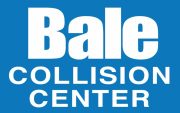Choosing the Right Collision Repair Method for Your Vehicle
When faced with vehicle damage, understanding the different repair methods available is crucial for making an informed decision. Whether it's traditional bodywork or paintless dent repair, each method has its advantages and is suited to specific types of damage. Knowing which option aligns with your vehicle's needs can save time and ensure quality repairs.
For instance, traditional repairs are often necessary for extensive damage that requires structural work, while paintless dent repair is ideal for minor dents where the paint hasn't been compromised. Evaluating the severity of the damage, costs, and repair time will help you choose the best approach for your vehicle's restoration.
Understanding the Importance of Vehicle Safety Features Post-Collision
After a collision, ensuring that your vehicle's safety features are fully operational is paramount for your safety and that of your passengers. Many modern vehicles come equipped with advanced safety systems that require recalibration following repairs, especially if the sensors or components were affected during the accident.
For example, features like automatic emergency braking and lane-keeping assist rely on precise sensor alignment. If these systems are not recalibrated, they may not function correctly, potentially leading to dangerous situations on the road. It's essential to work with a repair shop that understands the significance of these systems and offers comprehensive calibration services.
Common Myths About Auto Body Repair Debunked
There are several misconceptions surrounding auto body repair that can mislead vehicle owners. One common myth is that all auto body shops provide the same level of service and quality, which is far from the truth. Each shop varies in expertise, equipment, and customer service, making it crucial to do your research before selecting a repair facility.
Another myth is that minor dents and scratches do not require immediate attention. In reality, neglecting these issues can lead to more significant problems, such as rust formation or decreased resale value. Understanding the facts about auto body repair can help you make better decisions regarding your vehicle's maintenance and safety.
How to Prepare Your Vehicle for Collision Repair
Preparing your vehicle for collision repair can streamline the process and ensure a smoother experience. Before taking your car to the shop, it's advisable to remove any personal belongings, as well as any accessories that could be damaged during the repair process. This step helps protect your items and allows the technicians to work more efficiently.
Additionally, documenting the pre-repair condition of your vehicle with photographs can be beneficial. This not only provides a reference for any disputes but also helps the repair shop assess the damage accurately. Being proactive in preparing your vehicle can lead to a more effective repair process and peace of mind.
